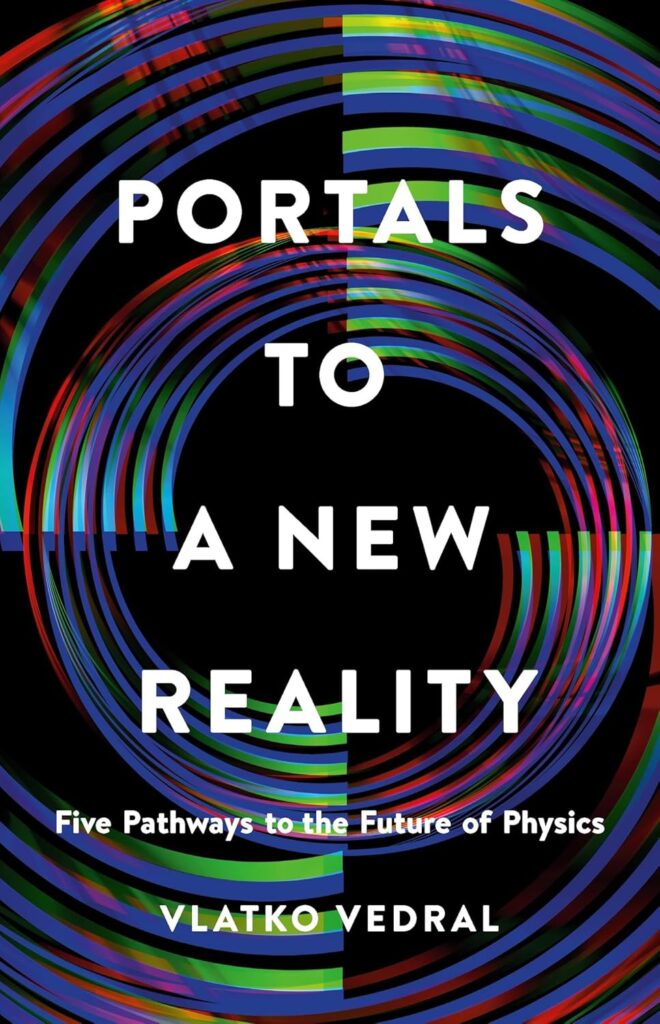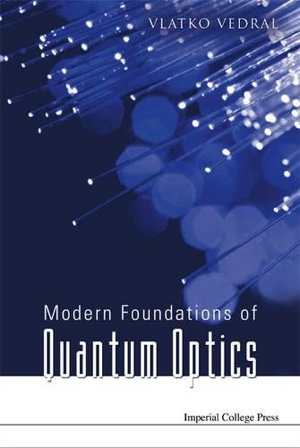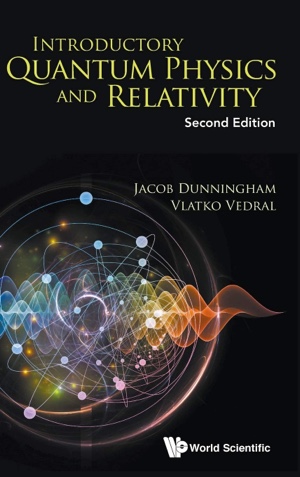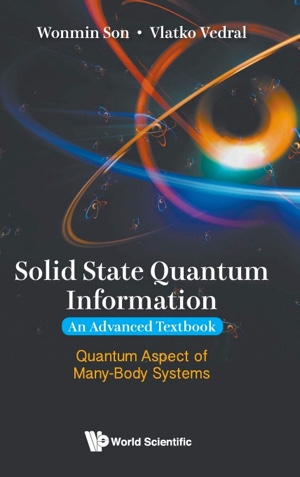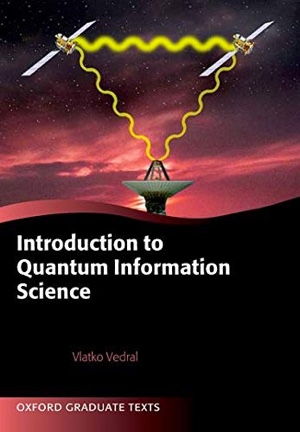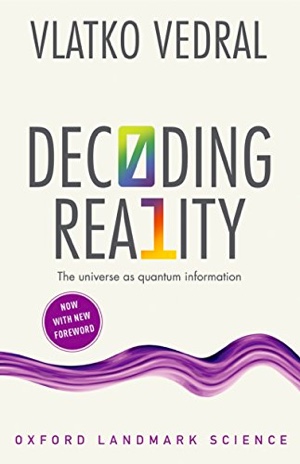I’d like to explain the origin of God
Interview by Aleks Krotoski – original article can be viewed here.
Professor Vlatko Vedral is a quantum physicist at the universities of Oxford and Singapore who grapples with the behaviour of energy and matter at subatomic scales, and this has led him to ask some bigger questions including why are we here? And what does it all mean? The 39-year-old, originally from Belgrade, passionately believes units of information – not particles – are the building blocks of humanity and everything that surrounds us. Information, he maintains, is what came before everything else. It is akin to God.
Vedral has set out his argument in a new book, Decoding Reality: The Universe as Quantum Information (OUP), in which he explains faith, love and teleportation.
What information is important at the quantum level, and how does it help us understand the origins of the universe?
At first sight, all types of information look very different from one another. For example, contrast thermodynamics – how chaotic a system is – with the information in your genome. You’d say: what on earth is the relationship between these two types of information? One looks much more orderly, the living system, while the other is disorder. But it’s actually one and the same information… you actually need very little to define the concept of information in the first place. When you strip out all the unnecessary baggage, at the core is the concept of probability. You need randomness, some uncertainty that something will happen, to let you describe what you want to describe. Once you have a probability that something might happen, then you can define information. And it’s the same information in physics, in thermodynamics, in economics.
Quantum physicists think of the universe as being made up of particles and strings. Are you suggesting that information is superior to these physical properties?
It depends on what you ultimately aim to explain. In science, we start with a certain basic set of laws, like the ones described by particle physics. These laws rely on quantum mechanics and relativity and so on. We start from them and try to describe everything else – subatomic, atomic, larger objects and, ultimately, the universe. But the simple question raised at the end is: where do these laws come from?
In science, we’re criticised for being unable to go beyond these laws to explain their origins. It’s what philosophers call an infinite regression: you give me an explanation, but I can ask where that comes from. We never seem to be able to end the list of questions. I think information is the only concept capable of almost explaining itself, of closing this circle.
How are you not conflating information with a God or another deity?
The common answer is that there was some kind of original creator of this information. The trouble is that this answer doesn’t really solve anything because as a physicist I’d also like to understand this being itself. I’d like to explain the origin of God. And then you encounter the same infinite regression. For a scientist, “Why is there a universe? Well, because something even more complicated created it the way it is” isn’t an explanation. We want a better answer than that. You can argue that science will never get there, that it’s an open-ended enterprise. Maybe this is faith.
But we also have a set of beliefs in science. We believe in one method of understanding the ultimate, secure truth: the scientific method. We make a conjecture. We try to refute it as far as we can. Those conjectures that survive longest are those that currently define the laws of nature. We’re not dogmatic about it at all; if you have compelling evidence that something is wrong, we are very happy to upgrade ourselves to the new theory. Of course you can always challenge me and ask why I believe this is the only way to understand the world. The only answer is that it makes sense to me. I find it better than anything else.
How can you explain the emergence of free will, of faith, of any subjective construct if information defined in your theory is binary, a yes or a no?
The things you describe are far too complicated to easily derive within physics, but I do believe one day that we will be able to explain complicated phenomena such as love, for example. I just don’t think anyone yet knows how to approach it. But quantum mechanics does bring all kinds of shades of grey between the binary digits.
The perspective of classical physics governed by Newtonian laws describes the world as deterministic, and that there is no randomness. But the key concept behind information is probability: if you could compute and predict everything, as we could if the world really was classical, there would be no concept of surprise and there’d be no information. Everything would be clear, from the beginning to the end of the universe. Somehow we need a genuine randomness that can’t be explained by anything more fundamental. That’s the key concept for explaining everything out of nothing.
To reduce humanity to this idea of mathematical quantification implies that we can be recreated by having the right recipe and ingredients.
We can take a particle of light, a photon, and we can recreate this photon in a different lab that’s hundreds of kilometres away. We can do the same thing with an atom, and smaller objects.
Human beings are ultimately nothing but a collection of atoms. If we apply this same teleport scheme, resulting in another copy of yourself somewhere else, what does that mean? Would you really be yourself? Or would the teleported self be another person with the same physical features who might not feel the same? As far as we know, this would have to be your self there. But we can only wait until an experiment is done to test this.
Are we at an important point in our human history in terms of how we generate, synthesise and understand information?
A good analogy is if you put yourself in the perspective of the people who, in the early 1920s, had just discovered the laws of quantum physics. They said it’s extremely difficult to apply this to even the simplest of atoms. Then along comes someone else who says: “I have a piece of solid – 10 to the power of 24 atoms – and you’re telling me you’re finding it hard to understand a single atom? How on earth will we understand a whole solid?” In fact, this happened very shortly afterwards. It’s called solid-state physics and it’s the basis of all modern technology.
Being negative by saying that it looks too complicated has always been refuted by scientists. That’s why I believe there is hope for us to understand more and more.
Sign up to my substack
BOOKS
ASK ME ANYTHING!
If you'd like to ask me a question or discuss my research then please get in touch.
